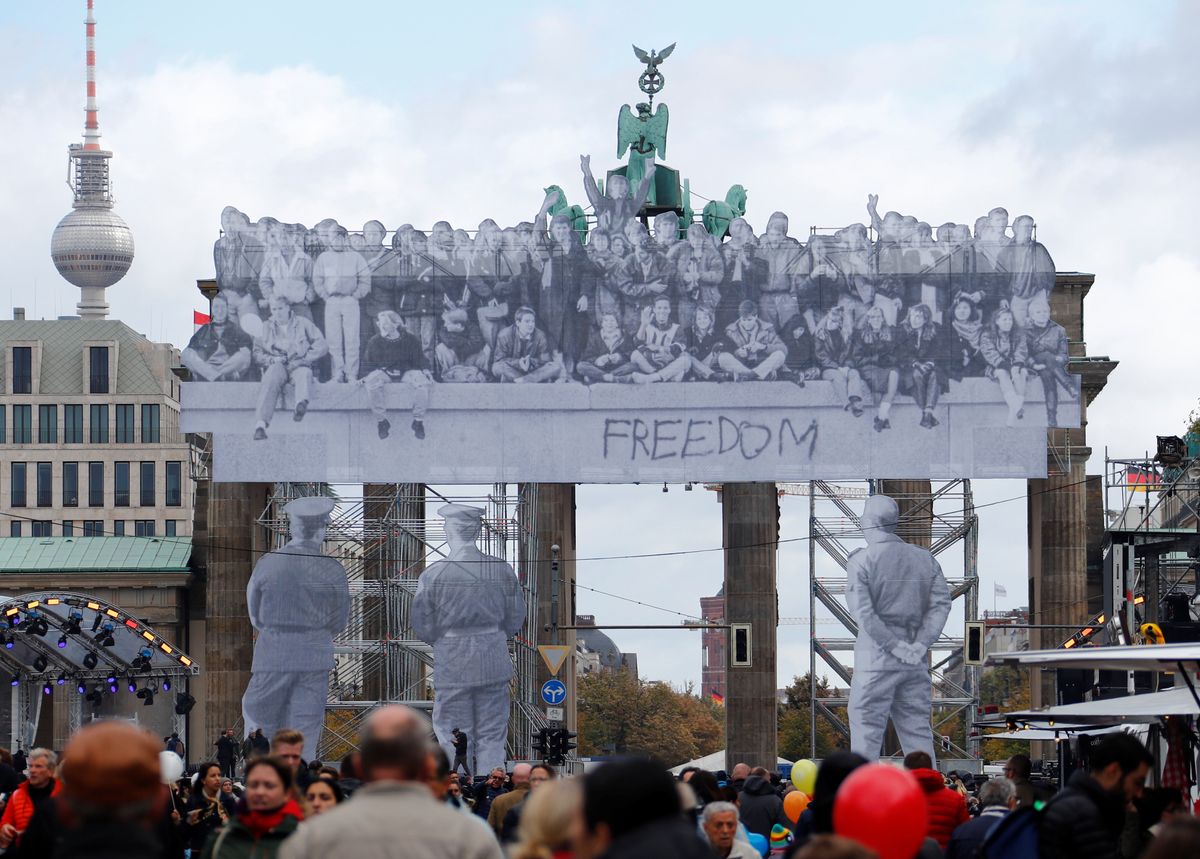Kevin Allison is a Senior Editor for Signal. Based in Washington DC, he looks at how technology is reshaping global affairs. Kevin is also a Director in the Geo-Technology practice at Eurasia Group. Kevin holds degrees from the University of Missouri and from Harvard's Kennedy School of Government. He was also a Fulbright Scholar in Vienna, Austria and a 2015 Miller Journalism Fellow at the Santa Fe Institute. Prior to GZERO Media and Eurasia Group, Kevin was a journalist at Reuters and the Financial Times. He has lived in eight US states and has been an expat four times.
Today, hundreds of thousands of people will gather to mark "30 Jahre Mauerfall" in Berlin. For days, people have been streaming to open-air exhibitions at the Brandenburg Gate, the former headquarters of the Stasi, and other sites around the city that were part of the drama that culminated in the opening of the Wall on November 9, 1989. The celebrations will reach fever pitch Saturday evening as a concert by the Staatskapelle Berlin gives way to a massive techno and punk rock dance party that will carry on through the night at 27 different clubs across the German capital.
It's going to be very German and uplifting, but scratch the surface and there's an angst lurking beneath all the revelry. Nearly three decades after reunification, Germany is still struggling to solidify its own identity and to stake out its place in the world.
As its people look ahead to the next 30 years, Germany's leaders face three big challenges.
Germany is still, in some ways, two countries: Reunification was one of the great political accomplishments of the 20th century, but today people in the former East still make about 15 percent less than those in the old West. Meanwhile, just 42 percent of people in the East think Germany's current democracy is the "best" form of government, compared with 77 percent of people in the West. This sense of being second class citizens, along with fears about how refugees may change Germany's culture, are what have given rise to the Alternative for Germany (AfD), a largely East-based party that is the first far-right group to enter the national legislature since World War Two.
Mutti won't be around forever: The woman who has been a steadying force in both German and global politics for nearly 14 years – about half the time since reunification – isn't going to be on the political scene much longer. By 2021, and maybe sooner if her grand coalition continues to lose support, Chancellor Angela Merkel, the world's longest serving leader of a democracy, will be leaving her post. The increasingly fractious state of Germany's domestic politics makes it hard to tell who, exactly, will take her place.
What's Germany's role in the 21st century? How will Berlin position itself in a world where the US is retreating from its commitments to traditional allies, and China is seeking greater global reach as an authoritarian technology superpower? There is little political will to massively boost Germany's defense spending to fill the gaps where the US no longer wants to. And challenging Beijing on issues of authoritarianism and surveillance (something you might say Germany knows a thing or two about) is hard when Germany's major industries – like the auto sector – are hugely dependent on exports to China.
These are complex problems without easy answers. For now, though, it's time to celebrate – check in on me on Sunday morning, will you?
